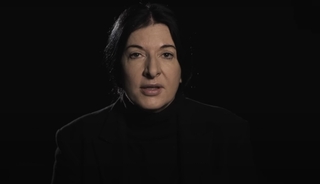People have always had a morbid fascination with death row inmates and what they select as their final meals.
Perhaps it's the curiosity of seeing what somebody actually chooses to eat as their final meal on Earth or maybe it's just another glimpse into the minds of the nation's most feared criminals.
Either way, final meals continue to be an eerie tradition to this day.
From one inmate's ludicrous final feast to Texas abolishing all inmate final meal requests after one guy overstepped the mark - there are many fascinating stories to tell.
But perhaps the most bizarre of all is that of Victor Harry Feguer - the convicted killer who ate only a single olive as his final meal.

When he was just 28 years old, Feguer was executed by hanging in 1963.
The Michigan-born killed had been in Iowa three years prior when he started panning the local phone directory for physicians.
After landing on the number of Dr. Edward Bartels, Feguer told the doctor that he was with a woman who was in urgent need of medical attention. And so, Dr. Feguer rushed to the given location.
Sadly, it was all a ruse - and Feguer swiftly kidnapped the 34-year-old doctor.
Dr Bartel was killed in Illinois with a single gunshot to the head - his body dumped in a cornfield.
Just days later, the FBI received a tip-off from a man who Feguer had attempted to sell a car to without the correct paperwork. The information led to Feguer's arrest.
Authorities summarized that Feguer had killed the doctor in an effort to steal any drugs the physician may have been carrying to help treat sick patients. Despite repeatedly professing his innocence, he was sentenced to death.
The story took an unexpected political turn when Feguer successfully lodged an appeal that could have seen President John F. Kennedy secure his life, per the LA Times.
However, JFK reportedly found the crime "so brutal" that the appeal was denied.
"Taking all factors into account, it is my decision that the petition should be and is hereby denied," the President wrote in a memo to Feguer.
When his three years behind bars coming to an end, it was time for Feguer to submit his final meal request.
A single olive - with the pit included.

The New York Daily News reports that Feguer had told guards that - when he was dead and buried - he had hoped that an olive tree would grow where he lay. An olive tree is renowned for being a symbol of peace.
Photographer Henry Hargreaves - who recreated a number of famous last meals for a photo collection called No Seconds - later told CBS News: "It's just such a polarising image.
"We think about last meals, and is it something that's going to be totally gluttonous, and then he just has a single olive."
"You know, it's so simple, beautiful, and kind of final. It's like a full stop at the end of his life."
Prison records state that Feguer grew consistently "quiet" as the days to his execution ticked away.
On the day before he died, he was said to be "cooperative and resigned" - with officers adding that he was "very calm" on the morning of his execution.
After his execution, the olive pit was reportedly found inside Feguer's suit pocket - adding truth to his notion that he wished for a tree to grow after his death.







